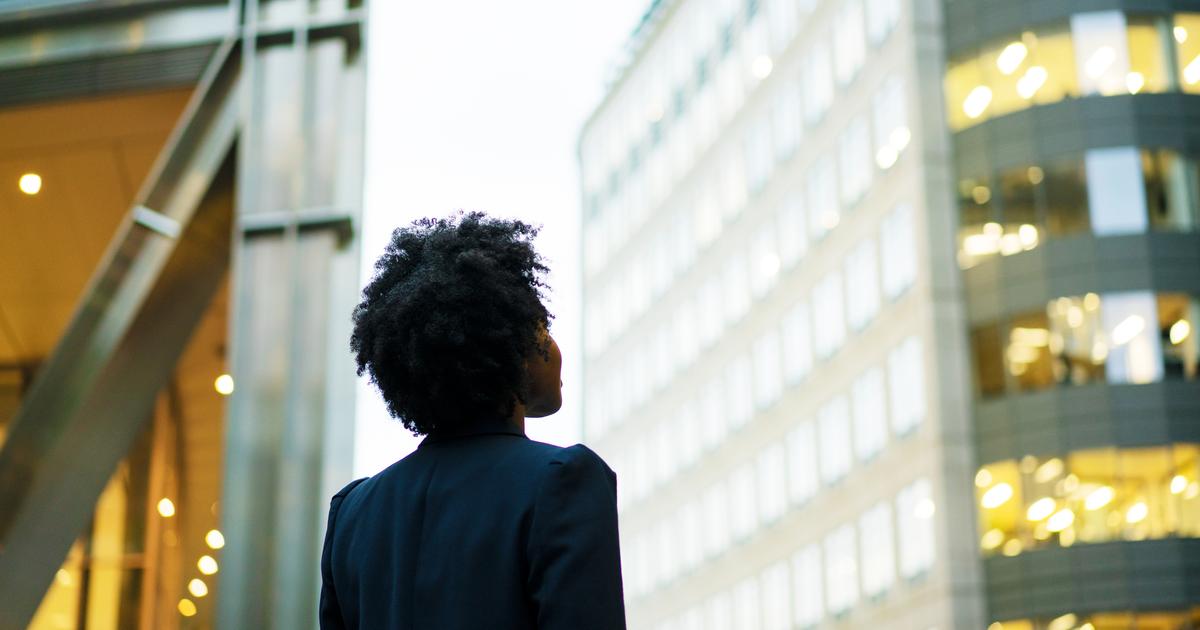They are nurses or nursing aides at the Victor-Dupouy d'Argenteuil hospital, in Val-d'Oise, where the incidence rates are the highest.
Candice, Mériemme and Nawal have been treating Covid patients for a year.
In this hospital center where 1850 caregivers work, including about 350 doctors, the rise in hospitalizations is a daily reality, "even more for three weeks", slips Catherine Le Gall, head of Emergency.
So we have to use strategies, find beds, push the walls.
With 125 hospitalized Covid patients, including 18 in intensive care, and 85 patients followed at home with Santé service, "we have exceeded the figure for the second wave", specifies Bertrand Martin, the director.
Weekly crisis unit, daily exchanges on WhatsApp between doctors and management, "we are constantly looking for solutions," he adds.
“We rely on our own strengths internally because we know that there are none outside
(no reinforcement possible, Editor's note)
.
»Diving into a daily life between extreme fatigue and a sense of duty.
"The third wave is tough": Candice, 27, nurse
Candice, 27, is an emergency nurse at Argenteuil hospital.
/ LP / MG
On the window of box 5 of the emergency department, this Monday, March 29, Candice affixes a sheet on which is written: Covid +.
Then, FFP2 mask on her nose, charlotte, gown and blue gloves, she rushes into the room.
In a benevolent voice, she takes the arm of the 69-year-old man, asks him if he is in pain while installing an infusion to rehydrate him.
The patient, lying down, whispered with difficulty that he wanted to "go home".
"Many react like that", notes the young woman Since her service, taken at 7.15 am, three Covid patients have already been proven, and it is not even 10 am.
At the reception, it is "rather calm", confides Nacéra, in post for 30 years.
But Friday, it was far from being the case, "it was Beirut" cowardly a caregiver.
“From 7:30 am to 7:30 pm, it didn't stop.
"Six patients, out of eleven requests, were transferred to public and private hospitals in Ile-de-France," said Catherine Le Gall, the head of the department.
These transfers allow this Monday not to be taken by the throat.
After Emmanuel Macron's speech on Wednesday evening, Catherine Le Gall, appreciates the “help” announced, “but it is a declaration of intent”.
She hopes that the toughening of measures, in particular the closing of schools which are an important breeding ground for viral circulation, will reduce the incidence and therefore the arrival of patients in hospital.
"We will have to assess the situation in ten days," she warns.
Newsletter The essentials of the 95
A tour of the news of Val-d'Oise and the IDF
Subscribe to the newsletterAll newsletters
For Candice, the third wave is a reality.
"And she's tough!"
We now have younger and younger patients, between 30 and 60 years old, she notes.
In box 4, it's a 22-year-old woman, on oxygen.
“That Monday, out of 200 passages, 30 are linked to Covid, and 12 people had to be hospitalized.
The days and weeks that arrive worries him.
"It's complicated," she explains between two patient care ... Covid, including a mother and her daughter who to give themselves courage at the time of the dreaded PCR test join hands.
“The care is heavy, it takes longer,” sighs the nurse.
The care of Covid patients is heavy for caregivers.
It requires constant attention./LP/Olivier Arandel
Despite the difficulty in staying at the front, never the smiling young woman, who during a break in the sun with Laëtitia, Cédric and another nursing assistant colleague, imagines herself having a barbecue.
She never thought of stopping this job she always wanted to do.
“It might be weird to say that, but I'm proud to be in the job.
I feel it's important to be there.
Here, in the hospital, it's reality, outside, it's another world, she says, disillusioned by what she sees outside.
People don't realize.
"
In her service, she is far from being the only one to think so.
“We are there because people do not respect barrier gestures, it must be said!
»Says Dr. Catherine Le Gall, eating a sandwich during the lunch break.
“We are living the Covid intensely.
When I see Lalanne making his cinema
(the singer has encouraged a crowd of people without masks to kiss each other, Editor's note)
, people who play pétanque or clustered on the banks of the Seine… ”Visibly annoyed, she does not finish not his sentence.
People no longer want to see or hear what is being said when it is a catastrophic situation.
A year ago people were afraid, not anymore, they want to live.
"
READ ALSO>
"A form of addiction": facing the Covid, French people less worried and vigilant
Is she ready to face this third wave?
"I ask myself the question, I go there it is like that, I show resilience".
She laughs at the use of "that buzzword."
“The projections worry me but we will adapt.
If necessary, we will further deprogram non-emergency operations.
We will see if government measures will curb the circulation of the virus ”.
And then she believes in the vaccine, "the over 75s, we no longer have them in our services, because they are vaccinated" she assures.
This is also observed by Candice, who at the end of the morning, disinfects box 5, before removing the Covid + poster, for a few hours at most.
"I was not taught to let a patient die alone": Mériemme, 32, nursing assistant
After the first wave, in the spring of 2020, Mériemme thought of resigning.
But she held on and continues to put on her white blouse every day./LP/Olivier Arandel
Mériemme is a nursing assistant at the Umedo (Orientation Medicine Unit), a service created in October 2018 to relieve emergencies, and which has since become 100% Covid.
She had carefully considered her decision.
After the first wave and the loss of her uncle and aunt from the Covid, Mériemme did not want to hear about this virus anymore.
She wanted to resign.
She who since the beginning of our meeting in the corridors of the Umedo, where the 28 beds are occupied, jokes, carries her colleagues, suddenly shows herself in a different light.
The look a little sad, she explains: "I was not taught at school to let a patient die alone, to cover him with a quilt, to be the last face he sees, he breaths. it.
I had warned my manager, I had thought about what I was going to write in my resignation letter but I did not manage to write it.
Finally, Mériemme continued to put on her white coat and returned to work.
Like her colleagues, she is "tired", apprehends the third wave.
"In fact I remain strong, I have a shell but I can crack, in the locker room for example," says Mériemme.
So she talks "to the girls".
Since the Covid, the service has 4 nurses and 5 nursing assistants, "because at home, my relatives cannot understand what I am going through", she explains.
The referral medicine unit at Argenteuil hospital has 4 nurses and 5 nursing assistants.
/ LP / Olivier Arandel
This gap with the outside, Emmanuelle Boitrou, the frame, also evokes it, in another context.
“When I see people partying outside, I'm sickened, shocked, sad… We haven't seen anyone for a year, she breathes.
It's difficult, we had a lot of deaths in the service, which had a lot of impact on the teams.
We don't see the end of it.
We do not want to go back but no choice, we go and we stick our tongue out.
"
Here, the life of service, where there is strong solidarity, is intense.
Everything changes quickly.
This Monday, 10 outings are planned.
Most of the patients will be hospitalized at home accompanied by Health service.
Enough to free up beds that will be occupied very quickly by other patients.
Room 307, Soumia
(given name changed)
, 23, is one of them.
Lila, a 52-year-old nurse, explains in her hoarse and soothing voice the tablets she will need to take at home.
“I would never have thought to find myself in this state, reacts the student whose heavy cough can surprise.
For me it was an old man's illness, I thought it would give me like the flu.
"Like her, they are" 85 to be hospitalized at home on oxygen, "says Emmanuelle Boitrou.
Many Covid patients are placed on oxygen therapy. / LP / Olivier Arandel
Beatrice, 59, will not have that chance yet, although her situation is improving.
"She was under 50 liters of oxygen, it's huge," admits Lila, while reassuring her patient.
Then, she joined her colleagues in the corridors, where on one side there are double rooms and on the other single beds "often reserved for end of life", slips Emmanuelle Boitrou.
In one of these rooms, a patient with a pale complexion seems to be out of this world.
“When she entered, she was talking, laughing, remembers Mériemme… This morning, her daughter was there, but she left in tears,” says the nurse.
"I have the impression that we're never going to get out of this": Nawal, 26, intensive care nurse
Nawal, intensive care nurse at Argenteuil hospital. / LP / MG
Nawal rushes into the room of a patient whose chest rises as a machine blows.
She seems to be sleeping, in reality she is in an induced coma.
It is early this Tuesday morning, while the doctors take stock of the night, Nawal goes to see his patients.
In this department, where all the resuscitation beds are occupied, the capacity has risen to 18 beds in these times of crisis, against 12 initially, the situation is heavy.
“I feel like we're never going to get out of this.
And to think that this summer we almost had no more Covid cases, ”recalls the young woman.
Today, only one patient is not Covid.
All the others, aged between 44 and 77, are affected by this virus that Nawal did not contract.
Some have the English variant, others the Brazilian.
This Tuesday, a little before 10 am, Nawal and his partner whom everyone nicknames "Boubou", take care of the exit of a patient.
The man is 71 years old and he remained in intensive care for 73 days.
He no longer seems conscious.
“It is, but often with the Covid, it takes time for the brain to reconnect,” explains Nawal.
Doctors from Smur (Mobile Emergency and Resuscitation Service) must take him to a rehabilitation service in Val-d'Oise.
An intern passes a head in the room: "Goodbye ML, take care of yourself", he blurted out.
No response back.
Between the arrivals and the exits of patients in the emergency rooms, there is movement in front of the Victor-Dupouy hospital./LP/Olivier Arandel
Less than ten minutes after this departure, the telephone rings.
"The sheave hello," Nawal replies.
Yes we have a bed that has just been released.
She hangs up, checks with a doctor that an emergency patient "in respiratory distress" is expected in the department.
"Yes that's it", we retort.
Nawal and Boubou disinfect the room.
Everything is accelerating for the pair.
“You have to disinfect, prepare everything, especially the syringes for the other patients in case you have to stay four hours here… You never know.
"








